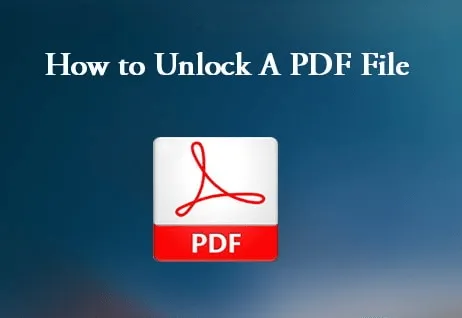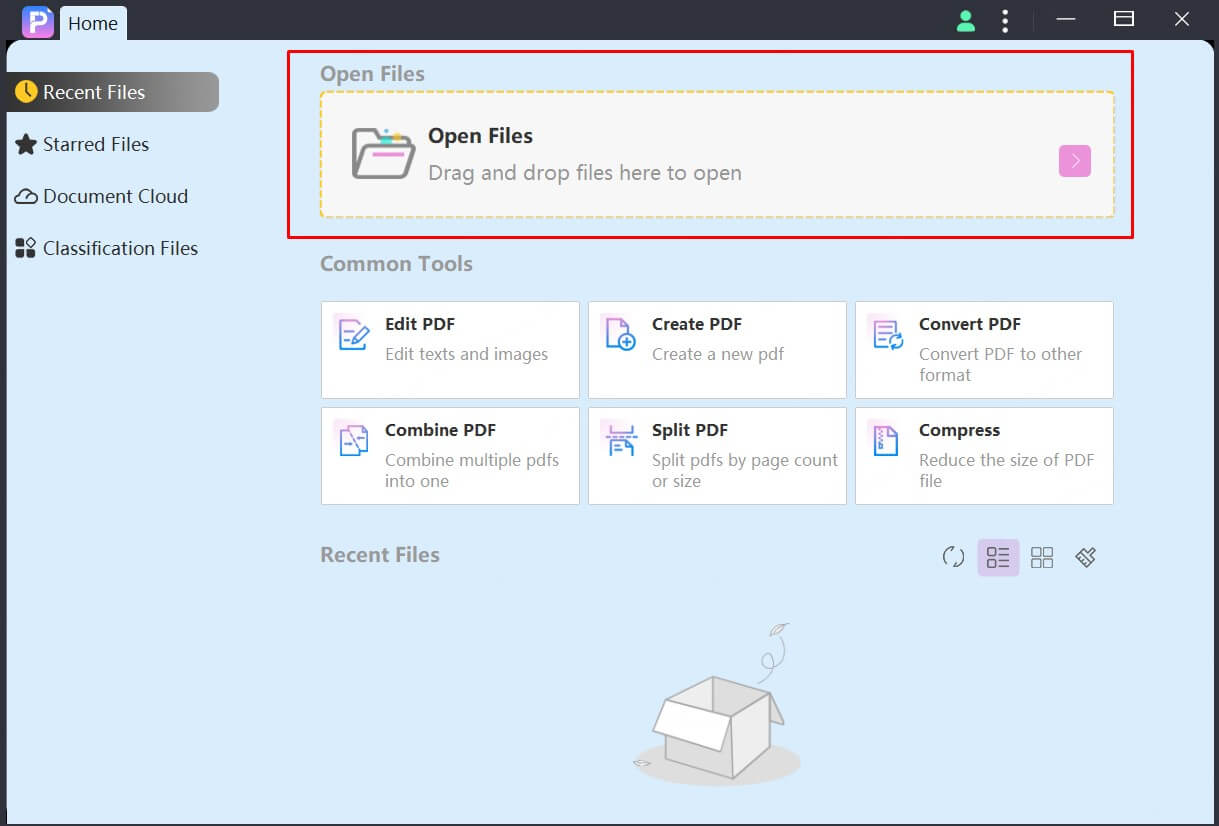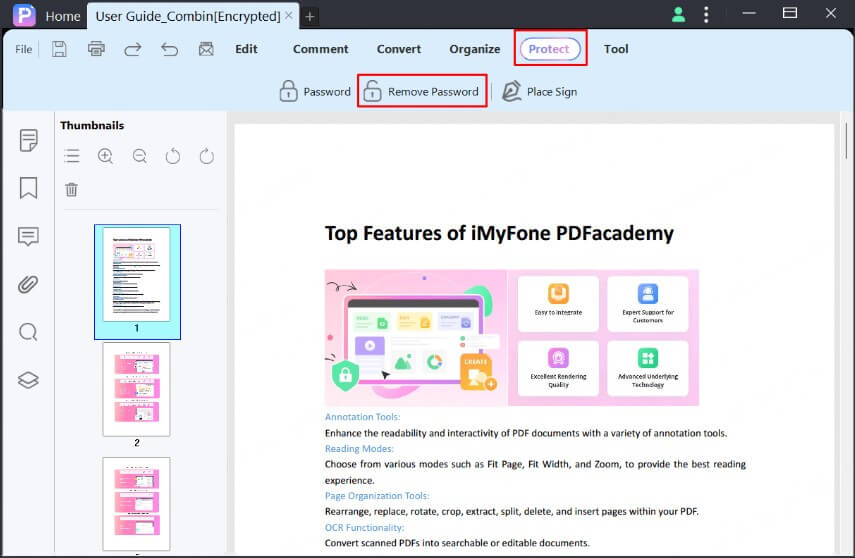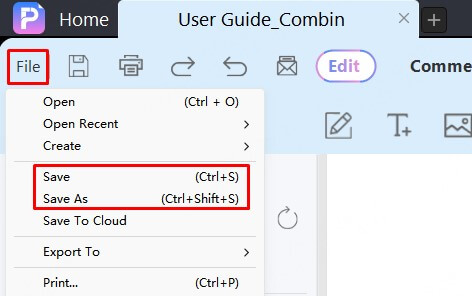How to Unlock a PDF: Best Tools in 2025
Category: Edit PDF

6 mins read
Locked out of your own PDF? Whether it’s a forgotten password or a file that won’t let you print or copy text, dealing with restricted PDFs can be frustrating. Fortunately, 2025 brings smarter, faster solutions to this common problem.
In this guide, we’ll walk you through how to unlock a PDF using the best tools available in 2025—no tech expertise required. Whether you're on Windows, Mac, or prefer online tools, we’ve got you covered with safe, efficient methods to regain full control of your files.

In this article:
Unlock Any PDF: 3 Proven Methods That Work
Struggling with a locked PDF? Here are three reliable methods you can use to unlock it—whether it's password-protected or restricted from editing and copying.
1 Method 1. Using Online Tools
PDFacademy makes unlocking PDFs quick and hassle-free, especially for desktop users. Whether your file is secured with an open password or restricted with a permission password, PDFacademy provides a straightforward way to remove these limitations and regain full control over your document—no technical skills required. Follow these simple steps after opening your PDF with the correct password:
Step 1: Launch PDFacademy and open your PDF file
Start PDFacademy on your computer. Then open the PDF file you want to unlock. If the file has an open password, enter it to access the content.

Step 2: Click "Protect" > "Remove Password"
Once the PDF is open, go to the top menu, click on the "Protect" tab, and choose "Remove Password". If the file has a permission password, you’ll be prompted to enter it.

Step 3: Save the PDF
After the password is successfully removed, save the PDF. The file is now unlocked and no longer protected by any password.

- Supports Both Open and Permission Passwords
- All-in-One PDF Tool
- Powerful Desktop Functionality
- May Require Installation
- Desktop-Only (No Mobile App)
2 Method 2. Using Online Tools
Online tools are a popular choice for unlocking PDFs due to their convenience and ease of use. By using this method, you can unlock the PDF file with the password and then transfer it as an editable PDF. Here’s a step-by-step guide on how to unlock a PDF using an online service.
Popular Online PDF Unlock PDF Tool:
- Smallpdf
- ILovePDF
- PDF2Go
Step-by-Step Guide:
- Step 1 -Upload the PDF: Visit the website of your preferred online tool (for example, Smallpdf). Find the “Unlock PDF” option and upload your locked PDF file.
- Step 2 -Select the Unlock Option: After uploading, the tool will ask you to confirm the action. If the PDF is owner password protected, it will proceed to unlock. If it’s user password protected, you’ll need to enter the password first.
- Step 3 -Download the Unlocked PDF: Once the process is complete, download the unlocked PDF to your device.
- Convenient and user-friendly
- No software installation required
- Works on any device with internet access
- Security concerns with uploading sensitive documents
- File size limitations
- Dependency on internet connection
3 Method 3. Using Command Line Tools
For tech-savvy users, command line tools offer a powerful way to unlock PDFs.
What Are Command Line Tools?
- qpdf
- PDFTK
Step-by-Step Guide to Using qpdf:
1.Installing qpdf: Install qpdf using your system’s package manager. For example, on Ubuntu, you can use the command sudo apt-get install qpdf.
2.Command to Unlock the PDF: Use the following command: qpdf --decrypt locked.pdf unlocked.pdf
Replace locked.pdf with the name of your locked file and unlocked.pdf with the name you want for the unlocked file.
How to Use Other Command Line Tools?
- PDFTK: Similar to qpdf, with a command like: pdftk locked.pdf input_pw PASSWORD output unlocked.pdf
- Replace PASSWORD with the user password if needed.
- Highly efficient and fast processing
- Ideal for batch unlocking and automation
- Requires familiarity with command line interface
- Can be intimidating for non-technical users
- Primarily limited to basic unlocking functions without a graphical interface
What to Consider When Unlocking a PDF?
Unlocking a PDF can seem straightforward, but there are several important factors to keep in mind to ensure a smooth and secure process:
1 Understanding Password Types and Access Rights
PDFs can be protected by two main types of passwords: open passwords, which restrict file opening, and permission passwords, which limit editing or printing. Knowing the type of protection helps determine the right unlocking method. Always ensure you have the legal right to unlock and access the document to avoid violating copyright or privacy laws.
2 Password Availability and Software Limitations
Most unlocking tools require you to know and enter the correct password before removal. Without it, unlocking can be difficult or impossible. Additionally, some tools may have limitations in terms of features, operating system compatibility, or handling complex encryption, so choose your software wisely based on your needs and technical comfort.
3 Security, Privacy, and Backup
Uploading sensitive PDFs to online unlocking services can pose privacy risks, as your files are processed on external servers. For confidential documents, desktop software that works offline is safer. Regardless of the method, always back up your original PDF before unlocking to prevent any data loss or corruption during the process.
4 File Size and Format Considerations
Many online tools enforce file size limits, which might restrict unlocking large documents. Furthermore, some unlocking processes can slightly alter the PDF’s formatting or metadata. After unlocking, review the output file carefully to ensure the content and layout remain intact.
Conclusion
Unlocking a PDF, whether for viewing or editing, is a task that many face. With the methods discussed—online tools, dedicated PDF software, and command line tools—you have several options to regain access to your documents. Always remember to use these methods responsibly and legally, respecting the intentions of the document's creator and any legal restrictions. If in doubt, seek professional assistance or contact the document creator.
















